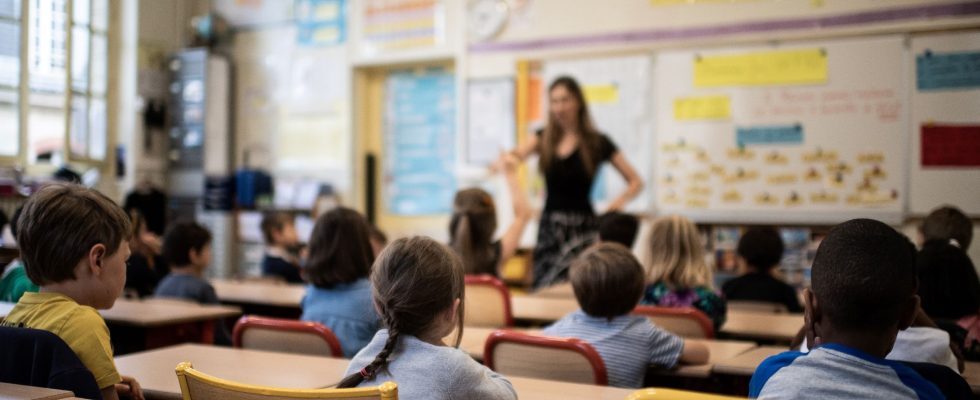Should we do more when we already do a lot? This is the question that arises when reading the report “Education at a Glance”, published this Tuesday September 12 by the OECD. Of the 38 member countries of the organization, France is the one where schoolchildren spend the most time learning fundamental knowledge. And by far: only Slovakia and Lithuania devote more than 50% of their school time to these subjects.
According to this report, 38% of lessons in France are dedicated to reading comprehension, that is to say reading, written expression and literature, and 21% to mathematics. The average for OECD countries is 25% and 16% respectively. A surprising discrepancy, given the difficulties still encountered by many students in these areas. One in three middle school students enters 6th grade without fully mastering the expected basics, and France remains at the bottom of the rankings in the international Pirls study. According to its latest results, published in May, 28% of French CM1 students have a low or very low reading level, compared to 22% in the European Union.
Quantity vs. quality
To compensate for these shortcomings, the Minister of National Education, Gabriel Attal, promises to go even further. “I want a shock of knowledge for our country, and in particular a shock of fundamental knowledge,” he insisted during the OECD press conference. This objective is not new: his predecessor, Pap Ndiaye, already said he made it his priority.
For Eric Charbonnier, education expert at the OECD, it is the content of the lessons that should be rethought. “We spend a lot of time in France doing fundamentals. And yet, when we look at the international rankings, we are doing less well than the average of European countries,” he explains to AFP. make us think about the fact that everything is not necessarily just a question of quantity and to look at how we could have a more qualitative approach.”
Daily dictation, more writing, but also support courses are all avenues studied by National Education to cure this French disease. Or an early start to school? In an interview with Point this summer, Emmanuel Macron proposed a return to school from August 20 for schoolchildren in difficulty. “We must assume that for these students, more school is needed,” confirmed Gabriel Attal on the TF1 8 p.m. news a few days later.
Another revelation from the OECD report, France spent more per student than the average of OECD countries in 2020, with 11,881 euros per head. But a glaring gap separates expenditure in secondary education (14,268 euros) from that in elementary education (8,485 euros). Pushing public investment in the education of young French people before they arrive at secondary school is perhaps the key to a real improvement in standards.
